
IMPACT OF YOUR GIVING
in support of The Cancer Research Innovation Fund


presented with gratitude to The Leon Levine Foundation

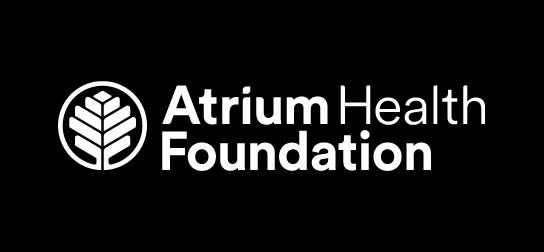
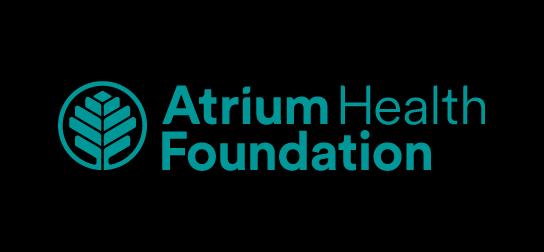


in support of The Cancer Research Innovation Fund


presented with gratitude to The Leon Levine Foundation



Cancer Research is an essential element of Atrium Health Levine Cancer Institute’s ongoing commitment to preventing, detecting, diagnosing, and treating a wide variety of cancers for all patients. In 2017, The Cancer Research Innovations Fund was created at Levine Cancer Institute to support innovative pilot studies that examine the efficacy, feasibility, and clinical impact of proposed interventions that show potential for use in larger clinical trials. We continue to experience firsthand the positive impact Levine Cancer Institute has on our patients, their families, and our staff.
Because of the Levine family’s altruism, we are positioned to deliver the highest-quality care and resources to patients and community members. We are deeply grateful for our longstanding partnership with The Leon Levine Foundation. Thanks to the Levine family’s extraordinary commitment to cancer care and research, we are improving the lives of our patients and their families.
Since opening in 2012, Levine Cancer Institute has been highly successful in developing, implementing, and recruiting patients to cutting-edge clinical trials – including first-in-human-studies of novel immune therapies in solid tumors, multiple myeloma, and lymphoma. These clinical trials identified, for the first time ever, an unusual form of leukemia in a child and facilitated a successful intervention for the patient through hematopoietic stem cell transplantation. The trials also supported the first demonstration of improved results of transplantation using novel strategies to individualize the dosage of drugs.


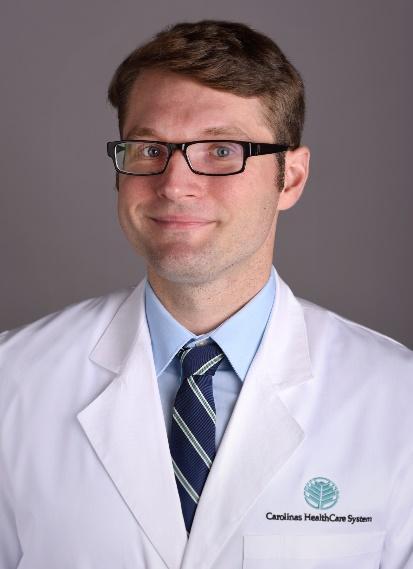

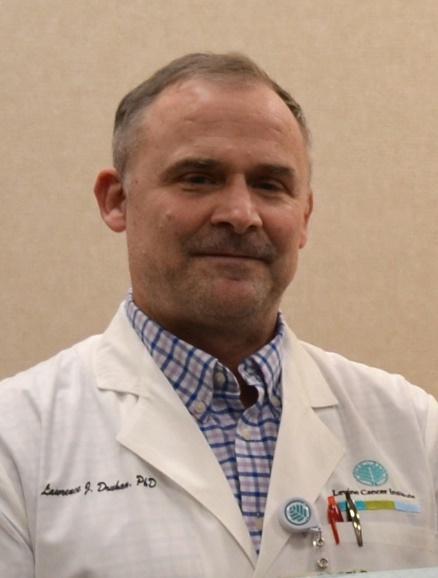






The objective of the Molecular Targeted Therapeutics (MTT) laboratory at AH/LCI/WFBCCC is to discovery genetic and epigenetic vulnerabilities of difficult to treat cancer cells “targets” and then use the computer to design, synthesize and test these small molecule inhibitory compounds that block multiple highly synergistic pathways in an effort to develop a new “first in class” group of compounds which will be introduced into cancer clinical trials at the Levine Cancer Center and WFBCCC. The Durden laboratory has continuously funded by the NIH for over 28 years to develop this highly innovative approach to cancer personalized care. Importantly, recently one of our compounds, LCI133 has been formally adopted by the National Cancer Institute (NCI) for formal development for human cancer therapeutics at the LCI and in the USA. These compounds are patented by the LCI/AH/WF in order to support their clinical development. Our work continues and the results are being published in a multiple high impact cancer and drug discovery journals e.g. Drug Discover Today 2024, PMID 30280655 .. It also spurred a large number of collaborations at AH/LCI/WFSOM/WFBCCC and throughout the USA. It has resulted in new grant funding with Dr. Stephen Park (Leukemia and Lymphoma Society) and the submission of at least 20 grant applications totaling approximately $20 million in total costs.
Our unending thanks to The Leon Levine Foundation and to Dr. Derek Raghavan for their generous financial/cognitive support for this highly innovative Drug Discovery program at the MTT/LCI. He has many times over past 5 years critically analyzed our work to be “world class” and has stated many times these multitargeted agents will revolutionize drug discovery therapeutics by blocking the development of drug resistance in refractory cancer patients for prolonged responses.
Presentation from this project at national and international conferences:
• American Association of Cancer Research, AACR, American Society for Hematology, ASH etc.
Multiple high impact publication in drug discovery and cancer research journals.
National and International support and impact of research for MTT laboratory
• In 2024 two NIH RO1 grants totaling over $3 million in total costs to the MTT laboratory to PI: Dr. Don Durden. Publications in very high impact journals. Patents on LCI133 filed.
Bench to bedside translation for cancer patients at LCI/AH/WFBCCC
• Compounds discovered patent-protected and NIH NCI formal support for development of LCI133 for human cancer clinical trials in near future (SS program, NIH NCI). All presentations and publications of this work include recognition of the generous support of
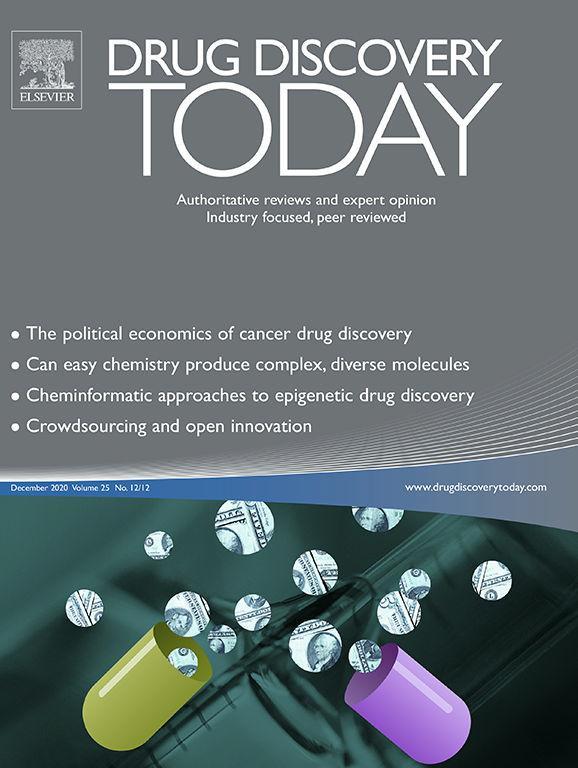
Project 2: Dose adjustment of post-transplantation cyclophosphamide for prevention of graft versus host disease
This study is designed to lead to personalization of post-transplant cyclophosphamide (PTCy) dose to prevent graft versus host disease (GVHD) following allogeneic transplantation. The field of allogeneic stem cell transplantation continues to rapidly evolve, and the use of post-transplant cyclophosphamide is now a standard of care across the field. Results have shown that the use of post-transplant cyclophosphamide following allogeneic hematopoietic stem cell transplantation with various matched related and unrelated donors results in a substantial decrease in the incidence and severity of both acute and chronic GVHD when compared to prior standard GVHD prophylaxis. While the use of post-transplant cyclophosphamide has been shown to be very effective in the prevention of severe acute and chronic GVHD, published data and clinical experience continues to urge caution between GVHD prevention vs. control of relapsed disease. Also, there is added toxicity that arises with this approach, such as cardiac risk and potential abnormal heart rhythm. It is important to identify factors that influence individual patient outcomes, which this project aims to elucidate.
This project is based on prior work by Drs. Copelan and Avalos on the personalization of pretransplant busulfan dosing prior to transplant, which has been proven to significantly improve transplant outcomes and is now standard practice. In 2022, we have completed and presented a comprehensive interim analysis, ASH New Orleans, LA in December 2022 (Blood (2022) 140 (Supplement 1).
This interim analysis has confirmed feasibility and produced novel information regarding pharmacokinetics and patient specific trends. This information has led to modifications in the study protocol to allow for more impactful data. We have since reopened the study in the summer of 2023 and actively recruit patients in line with our targeted accrual.
Project 2: Dose adjustment of post-transplantation cyclophosphamide for prevention of graft versus host disease
Numbers (data cut-off 4/13/22)
Accrual goal: 33 recipients
Open to Accrual: 7/13/2018
Enrollment suspended for COVID-19: 3/16/2020
Suspension lifted: 10/20/2020
Current Status: Open to accrual
This study is designed to lead to personalization of post-transplant cyclophosphamide (PTCy) dose to prevent graft versus host disease following allogeneic transplantation. It is based in part on the previous work of Drs. Copelan and Avalos on personalization of pretransplant busulfan dosing prior to transplant, which has been proven to significantly improve transplant outcomes and is now standard practice. We have completed and presented a pre-planned comprehensive analysis on data obtained from 10 subjects. This data on pharmacogenomic, pharmacokinetic and immune profiling has allowed the study team to update the protocol.
Accomplishments: Based on our interim analysis and constructive feedback from presentation at the ASH 2022 Annual Symposium (Blood (2022) 140 (Supplement 1): 10534–10536). We have amended our protocol and successfully reopened the study in July 2023. We continue to successful identify and enroll patients. We currently have 25 patients enrolled (19 recipients) since the study started in 2018 with 3 additional patients to be approached in May and June 2025. The cellular therapy section has been very proactive about approaching and enrolling patients onto this study. We are very excited to have identified novel immune activation signals that may be related to post-transplant cyclophosphamide dosing to transplant related complications and outcomes. We look forward to gathering and analyzing more data with ongoing accrual to lead to an impactful improvement in patient outcomes.
On behalf of the entire study team, we most sincerely thank The Levine Foundation for the ongoing generous support!
RNA splicing is a process by which a single gene can produce different proteins. This process increases diversity of cellular functions without changing the human genome. Defects in RNA splicing have been demonstrated to cause malignant blood diseases. Splice variants of the Granulocyte Colony Stimulating Factor Receptor (CSF3R) influences signaling, which regulates maturation of white blood cells and is involved in the development of acute and chronic myeloid leukemia. In a paper published in 2019 in the journal Leukemia, Drs. Druhan, Avalos and colleagues report for the first time the expression of specific splice variants of CSF3R in human AML cells and the effect of mutations in the splicing factor SRSF2, a gene commonly mutated in AML. In a second paper published in 2019 in Biochemical & Biophysical Research Communications, they report that mutations in the most common splice variant of CSF3R found in patients with chronic neutrophilic leukemia alter cellular signaling through abnormal processing and activation of the fully mature receptor form.
Continued work on this project has led to the discovery of a novel splice variant of the CSF3R gene that produces a receptor that is not capable of signaling, and demonstration that expression of this novel splice variant is altered in acute myeloid leukemia (Leukemia Research 2020, 92:106349). Additionally, custom antibodies have been developed to detect the protein products of the common splice variants, and have been used demonstrate, for the first time, expression of the protein isoforms in primary human cells. This work was reported at the 2020 annual meeting of the American Society of Hematology (ASH).
Building on these results, using cutting edge gene editing techniques combined with retroviral expression systems, Drs. Druhan, Avalos, and colleagues have developed a novel in vitro model in primary cells to study how each splice variant and other mutant forms of CSF3R regulate white blood cell proliferation and differentiation. Using this system they have for the first time, demonstrated that a splice variant of the CSF3R (splice variant 3) has decreased capability to support both proliferation and differentiation of white blood cells. Additionally, using a technique called bioluminescence resonance energy transfer (BRET), they were the first to demonstrate that each of the CSF3R isoforms form heterodimers, where two different protein isoforms bind together, and that the formation of the heterodimers leads to an alteration in the function of the receptor. These results indicate a mechanism whereby changes in CSF3R splice variants in leukemia patients can lead to alterations in the normal development of white blood cells, contributing to the pathophysiology of leukemia. These results were presented at the 2022 annual meeting of the American Society of Hematology (ASH). As of 2024, this project is still moving forward, but the new results are still a bit too preliminary to report and the manuscript is in preparation with a goal to publish by the third quarter of 2025.
This work is the basis for the development of innovative approaches using molecules targeting the abnormal splicing and signaling observed in patients with leukemia as novel anti-leukemic therapies. The support of The Leon Levine Foundation was fundamental to the research and was acknowledged in the three published manuscripts and in the abstracts presented at the international meetings of the American Society of Hematology.
The objective of this study, overseen by Dr. Nilanjan Ghosh and Dr. Jai Patel, is to examine specific genes (evaluable by buccal swabs) involved in the metabolism of ibrutinib in the treatment of CLL. Genetic variations in specific enzymes involved in drug metabolism can result in huge variations in drug exposure and result in either subtherapeutic levels of drugs (and ineffectiveness) or supratherapeutic levels (risking side effects).
A total of 50 patients receiving ibrutinib were consented. Buccal swab samples were collected on all these patients (n=50), and blood samples (for measuring peak and trough concentrations) are available for a subset. We identified four pharmacogenomic markers in genes that can predict which patients are most at risk of cardiovascular side effects of the drug. Based on multivariate analysis, a high-risk genetic score was defined as the presence of at least two of these genotypes, was associated with a 11-fold increase in incidence of ibrutinib related cardiovascular side effects. This study is now complete with main results published in a high impact factor journal. It also spurred a collaboration with University of Michigan to replicate our findings.
Presentation from this project at National conference:
• Identification of Genetic Markers Associated with Ibrutinib Related Cardiovascular Toxicity. American Society of Clinical Oncology (ASCO) Annual meeting, 2021 Publications from this project:
• Genetic predictors of Ibrutinib- related cardiovascular side effects in patients with chronic lymphocytic leukemia. Clinical Cancer Research, 2023 Dec 1;29(23):4941-4948, PMID 37738027
• Bruton’s Tyrosine Kinase Inhibitor-related Cardiotoxicity: The Quest for Predictive Biomarkers and Improved Risk Stratification. Oncotarget, 2024, Jun 3:15:355359. PMID: 38829647
• Pharmacogenetic associations of GATA4 and KCNQ1 with ibrutinib cardiovascular toxicity. Pharmacogenetics and Genomics, 2025, Apr 1;35:101-109. PMID 39832190
All presentations and publications of this work include recognition of the generous support of The Leon Levine Foundation.


Thank you to the Levine family and The Leon Levine Foundation for your unwavering support and philanthropy. We deeply appreciate your commitment to cancer research and aim for our research to advance the field of cancer care.


for your investment in Atrium Health and your incredible commitment to patients and families in our region